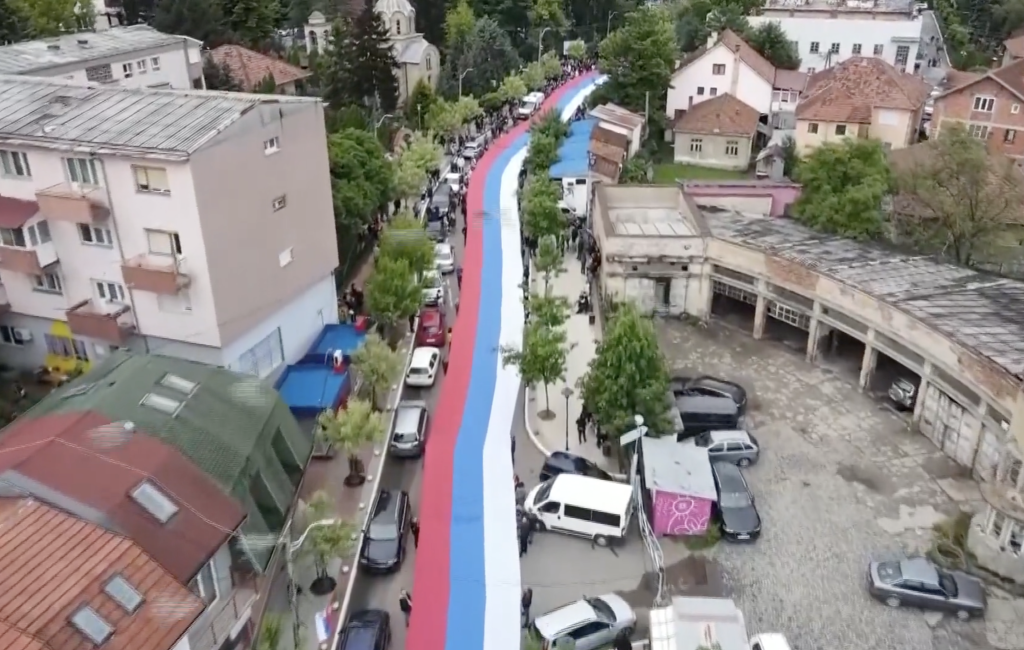
Please Follow us on Gab, Minds, Telegram, Rumble, Gab TV, GETTR, Truth Social, Twitter, and Facebook
Serbs in northern Kosovo and Metohija continue to resist the attempted takeover of municipal buildings by Albin Kurti’s paramilitary forces. Serbs resorted to peaceful protests to stop the installation of Albanian officials in the overwhelmingly Serb-majority cities, following sham elections in April that were boycotted by Serbs and saw only 3.5% of the electorate participate. In trying to forcibly install the Albanian officials, Kurti’s troops initiated attacks on the protesters causing tensions to escalate.
Serbia responded by placing its army on high alert and stationing troops along the administrative border with the province. NATO responded by sending another 700 troops to the region. This led demonstrators in the city of Zvecan to protest the move, seen as supporting the Kurti regime, by rolling out a 250-meter tricolor of the Serbian flag.
The prime minister of the autonomous province of Kosovo tried to sway international public opinion over the weekend, giving interviews to western media outlets, including an appearance on Meet the Press. Kurti tried to deflect criticism of his regime’s violent tactics, blaming “orchestrated violent mobs” for the conflict and accusing Serbian government of trying “destabilize Kosovo.”
Kurti’s attempt to change the narrative and blame the Serbs for the violent failed to sway international public opinion. Officials in Washington, Brussels, Paris, and Berlin have called for new elections, with Serb participation, to de-escalate the conflict. British Foreign Minister Andrew Mitchell called on Pristina to remove its paramilitary police forces from municipalities in the north of Kosovo. European officials realize that Prishtina’s refusal to implement the previously agreed upon Community of Serbian Municipalities to allow for a degree of self-rule is at the heart of the current crisis.